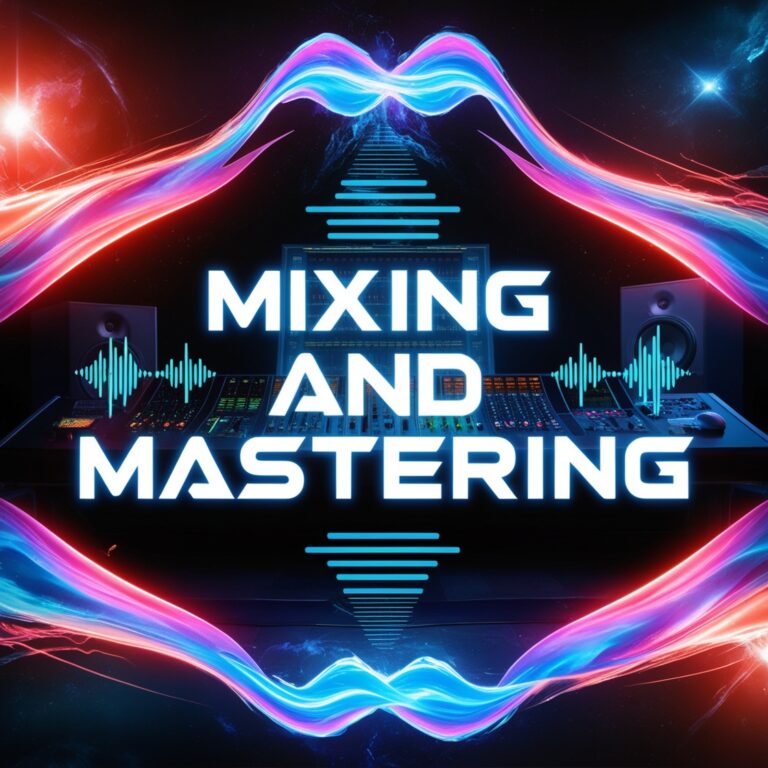
- OverView
- Curriculum
Course Duration:
5 Month
Fee:
Domestic: ₹78000
Objectives:
- Introduce students to electronic music production tools and techniques.
- Develop skills in sound design, composition, arrangement, mixing, and mastering.
- Explore various electronic music genres and styles.
- Encourage creativity and individual artistic expression.
- Prepare students to produce complete, polished tracks by course end.
Month 1: Mastering Ableton Live
- Introduction to Ableton Live’s interface: Session View vs. Arrangement View.
- Setting up audio preferences, MIDI configurations, and project workflows.
- Working with audio and MIDI: Recording, importing, editing, and using instruments like Drum Rack and Simpler.
- Exploring warp modes, time-stretching, and MIDI effects.
- Overview of audio effects: EQ, reverb, delay, and compression.
- Using automation and racks for dynamic and creative productions.
- Transitioning from Session View to Arrangement View for track arrangement.
Month 2: Music Theory for Producers
- Understanding notes, scales, chords, and progressions.
- Applying music theory in MIDI composition to create melodies, harmonies, and basslines.
- Exploring major, minor, and modal scales for unique melodic ideas.
- Building rhythmic grooves, programming drums, and creating swing.
- Practical exercises to apply music theory and develop cohesive musical ideas.
Month 3: Sound Design
- Introduction to synthesis: Subtractive, FM, and Wavetable.
- Designing leads, basses, pads, plucks, and custom percussion.
- Using LFOs and envelopes for sound shaping.
- Advanced techniques for creating atmospheres, evolving pads, and textures.
- Incorporating original sound designs into compositions.
Month 4: Arrangement and Composition
- Analyzing song structures across electronic genres.
- Building and arranging intros, verses, breakdowns, and drops.
- Using transitions like risers and impacts for smooth flow.
- Developing advanced arrangements with automation and layering.
- Structuring tracks for different genres and performance settings.
Month 5: Mixing, Mastering, and Industry Preparation
- Balancing elements in a mix, gain staging, and frequency control.
- Using EQ, compression, and dynamic effects for polished mixes.
- Creating space and depth with reverb, delay, and stereo imaging.
- Preparing tracks for mastering and understanding the mastering chain.
- Learning about music distribution platforms and release preparation.
- Basics of music marketing, networking, and building an audience.
Teaching Methods
- Lectures and Demonstrations: Clear explanations paired with live demonstrations in DAWs.
- Hands-On Practice: Ample time for students to apply concepts.
- Collaboration: Encouraging peer feedback and collaboration on mini-projects.
- Feedback Sessions: Regular review and constructive, actionable guidance.
- Q&A and Discussion: Open environment for questions and deeper understanding.
Conclusion:
This 5-month course provides a comprehensive foundation in electronic music production, equipping students with the skills to create professional-quality tracks. By blending theory with practice, students progress from the basics to mastering their craft, ready to share their music with the world.
Course Duration:
5 Month
Fee:
Domestic: 78000 INR
International: 78000 INR
Objectives:
- Introduce students to electronic music production tools and techniques.
- Develop skills in sound design, composition, arrangement, mixing, and mastering.
- Explore various electronic music genres and styles.
- Encourage creativity and individual artistic expression.
- Prepare students to produce complete, polished tracks by course end.
Curriculum:
Month 1: Mastering Ableton Live
- Introduction to Ableton Live’s interface: Session View vs. Arrangement View.
- Setting up audio preferences, MIDI configurations, and project workflows.
- Working with audio and MIDI: Recording, importing, editing, and using instruments like Drum Rack and Simpler.
- Exploring warp modes, time-stretching, and MIDI effects.
- Overview of audio effects: EQ, reverb, delay, and compression.
- Using automation and racks for dynamic and creative productions.
- Transitioning from Session View to Arrangement View for track arrangement.
Month 2: Music Theory for Producers
- Understanding notes, scales, chords, and progressions.
- Applying music theory in MIDI composition to create melodies, harmonies, and basslines.
- Exploring major, minor, and modal scales for unique melodic ideas.
- Building rhythmic grooves, programming drums, and creating swing.
- Practical exercises to apply music theory and develop cohesive musical ideas.
Month 3: Sound Design
- Introduction to synthesis: Subtractive, FM, and Wavetable.
- Designing leads, basses, pads, plucks, and custom percussion.
- Using LFOs and envelopes for sound shaping.
- Advanced techniques for creating atmospheres, evolving pads, and textures.
- Incorporating original sound designs into compositions.
Month 4: Arrangement and Composition
- Analyzing song structures across electronic genres.
- Building and arranging intros, verses, breakdowns, and drops.
- Using transitions like risers and impacts for smooth flow.
- Developing advanced arrangements with automation and layering.
- Structuring tracks for different genres and performance settings.
Month 5: Mixing, Mastering, and Industry Preparation
- Balancing elements in a mix, gain staging, and frequency control.
- Using EQ, compression, and dynamic effects for polished mixes.
- Creating space and depth with reverb, delay, and stereo imaging.
- Preparing tracks for mastering and understanding the mastering chain.
- Learning about music distribution platforms and release preparation.
- Basics of music marketing, networking, and building an audience.
Teaching Methods
- Lectures and Demonstrations: Clear explanations paired with live demonstrations in DAWs.
- Hands-On Practice: Ample time for students to apply concepts.
- Collaboration: Encouraging peer feedback and collaboration on mini-projects.
- Feedback Sessions: Regular review and constructive, actionable guidance.
- Q&A and Discussion: Open environment for questions and deeper understanding.
Conclusion:
This 5-month course provides a comprehensive foundation in electronic music production, equipping students with the skills to create professional-quality tracks. By blending theory with practice, students progress from the basics to mastering their craft, ready to share their music with the world.
Explore Courses

Mastering DJing
Mastering DJing Enroll Now OverView Curriculum Course Duration:2 Month Fee:Domestic: ₹30,000/MonthInternational: ₹35,000/Month Objectives:Master the skills to perform live, from beatmatching to creating

Music Theory for Electronic Music Producers
Music Theory for Electronic Music Producers Enroll Now OverView Curriculum Course Duration:1 Month Fee:Domestic: ₹15,000/MonthInternational: ₹20,000/Month Objectives:Build a solid foundation with essential

Sound Design Mastery for Electronic Music Production
Sound Design Mastery for Electronic Music Production Enroll Now OverView Curriculum Course Duration:2 Month Fee:Domestic: ₹30,000/MonthInternational: ₹35,000/Month Objectives:Explore the art of crafting

Electronic Music Production Course
Electronic Music Production Course Enroll Now OverView Curriculum Course Duration:5 Month Fee:Domestic: ₹78000 Objectives:Introduce students to electronic music production tools and techniques.Develop

Psytrance Music Production Course
Psytrance Music Production Course Enroll Now Overview Basic Curriculum Advance Curriculum Course Duration:Basic: 2 MonthsAdvance: 3 MonthsFee:Basic: ₹26,000Advance: ₹48,000Sessions:Basic: 16

Techno Music Production Course
Techno Music Production Course Enroll Now OverView Curriculum Course Duration:5 Month Fee:Domestic: ₹78000 Objectives:Develop a deep understanding of minimalism and groove central





